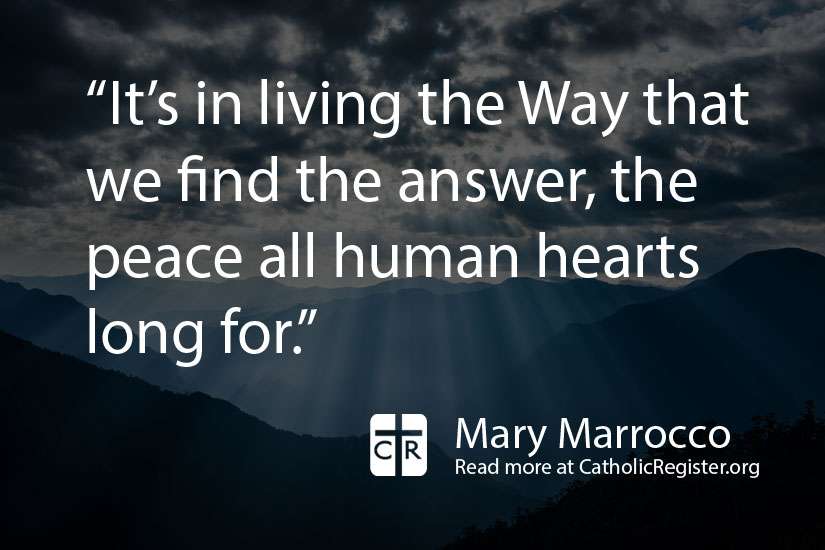Friends and I heard a young couple, passing by, discussing styles of weddings. Responding to the description of a wedding he’d attended, the man’s companion remarked: “Interesting. I’ve never been to a church wedding.” She spoke without any emotion, merely speculative, as though a church wedding was a quaint item picked up in an antique shop, something you’d heard of but never expected to meet.
It left us reflecting on the growing separation between Christianity and secularity. Where is the Christian faith in the world? Where does it belong now? Are Christians right and atheists wrong, or the other way around? It’s hard not to wonder.
There is, however, another way to live the questions.
St. Benedict of Nursia offered a way that’s lasted 1,500 years and formed European civilization. Indeed, since the monks who followed Benedict’s rule civilized so many European countries, Pope Paul VI declared him patron saint of all Europe. His feast is July 11.
St. Benedict’s Rule isn’t, as the title might suggest, a series of regulations or a reference manual. It’s a straight-edge, something to lean on, a measure to help us through the contrarieties of living.
Early Christians referred to their movement as “the way,” following Christ the Way. Benedict’s Rule is a way to be in the world.
It’s excellent reading for anybody, not only monks and not only Christians. But ultimately it’s to be lived. It distills into three Latin words, ora et labora (pray and work).
Life can be daunting and leave us perplexed and anxious. Sometimes it paralyzes us altogether. In response, Christians can be tempted to two extremes. We might think we’re right about everything, and our work is to correct and save “them.”
This is highly tempting, especially when so many contemporary notions seem foolish, wrong-headed or destined to lead people astray.
Or we might be tempted to hide away our faith in fear and shame, since so many seem to live successful lives without it, and wrong-headed Christians can also wreak havoc.
St. Benedict’s Rule allows us to avoid the two extremes, and find a way of peace.
Work is our way of being in the world, and prayer is the cry of the heart. The Rule helps us organize our lives concretely so there’s time for the heart without losing time for the work we’re supposed to do. Prayer and work become part of the same dance. We tend to separate contemplation from action, as though they were exclusive dimensions of people’s personalities (some of us inclined to contemplation and some to action). Benedict recognizes we can’t be in the world without also being in the heart. This way gives peace, not a mindless stupor but an active peace that brings life to us and to the world we’re part of. The Rule witnesses a tradition that didn’t see the Church as “in” the world, but as the heart of the world.
There isn’t really a battle between Christians and secular people, among Christians or between religions. There’s a dialogue between God in His eternal glory and humanity in our present pain and longing. In a poem sung in church one evening, I caught the beauty and simplicity of the dialogue between God and us.
This dialogue is what we listen in on when we meet Christ. It’s God’s investment in humanity, to bring us to the fullness of life, all of us and each of us.
The answer isn’t in reading the Rule, or memorizing ora et labora, good though these are to do. It’s in living the Way that we find the answer, the peace all human hearts long for.
The longing in us is also our faith. The questions in us are also the answer.
The note that is in our hearts is waiting to be sung.
(Marrocco can be reached at marrocco7@sympatico.ca.)


